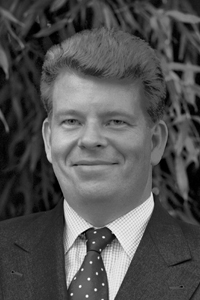Brewer and hotelier Stefan Schörghuber dies at 47
Stefan Schörghuber, the owner and Chief Executive Officer of the Munich-based Schörghuber Corporate Group, died unexpectedly on 25 November. He was 47 years old. The privately-owned Schörghuber Corporate Group which holds a controlling stake in Germany’s number three brewer, BrauHolding International, is also active in the real estate and construction business as well as in hotels and aircraft leasing. Mr Schörghuber’s sudden death renews rumours over the future of BrauHolding International, which is 49.9 percent owned by Heineken.
It is certainly bad taste to speculate over the fate of a business conglomerate only days after the sudden death of its owner. While family and friends are mourning the very private and unassuming Mr Schörghuber, industry pundits are wondering already what will become of Mr Schörghuber’s reportedly EUR 1.7 billion business empire which he inherited from his father in 1995.
His father, Josef Schörghuber, a carpenter by training, made his fortune as a real estate developer with a penchant for breweries (or rather the property they were sitting on) and hotels. It was Stefan Schörghuber’s achievement to turn these diverse interests into a holding in which brewing figured most prominently. He expanded his beer business through acquisitions and a joint venture with Heineken. BrauHolding International under Mr Schörghuber’s stewardship became Germany’s number three brewer with a turnover of an estimated EUR 800 million, an output of 11.6 million hl and 4000 employees (figures for 2007).
Mr Schörghuber, who is one of Doemens brewing school’s alumni, owned 50.1 percent of BrauHolding International, the maker of German beer including Paulaner, Kulmbacher, Fürstenberg and Hopf.
Heineken had not been Mr Schörghuber’s first choice as a partner. An attempt at linking up with Germany’s Brau + Brunnen Group in 2001 had collapsed in the course of due diligence procedures. That was Heineken’s chance. After Interbrew had bought Beck’s, Heineken was keen not to be left out of the action in Germany. Paulaner was an attractive brand and well-established in the south of Bavaria. Moreover, Mr Schörghuber’s beer portfolio included one gem that Heineken was very interested in: a stake in Chile’s brewer CCU.
However, the relationship with Heineken proved rocky. According to rumour, Mr Schörghuber and Heineken have had many disagreements. The revolving doors at BrauHolding International’s executive suite have always kept spinning very fast.
Over the years, people who claimed to be close to the action said that Mr Schörghuber has always been in two minds over whether he should allow himself to be bought out by Heineken completely or whether he should buy back Heineken’s shares in his business.
Alternatively, Mr Schörghuber could have sold his stake to Germany’s beer market leader, the privately-owned Radeberger Group. Radeberger Group, which is backed by the Dr Oetker food group, has said repeatedly that it wants to strengthen its presence in southern Germany through an acquisition.
Radeberger Group, which is currently said to be in takeover talks with InBev over the sale of InBev’s German investment, now holds all the options. Should Mr Schörghuber’s right-hand man, Hans-Peter Hoh, decide to dispose of Mr Schörghuber’s stake in BrauHolding International, Radeberger Group would be among the first to beat a path to his door.


